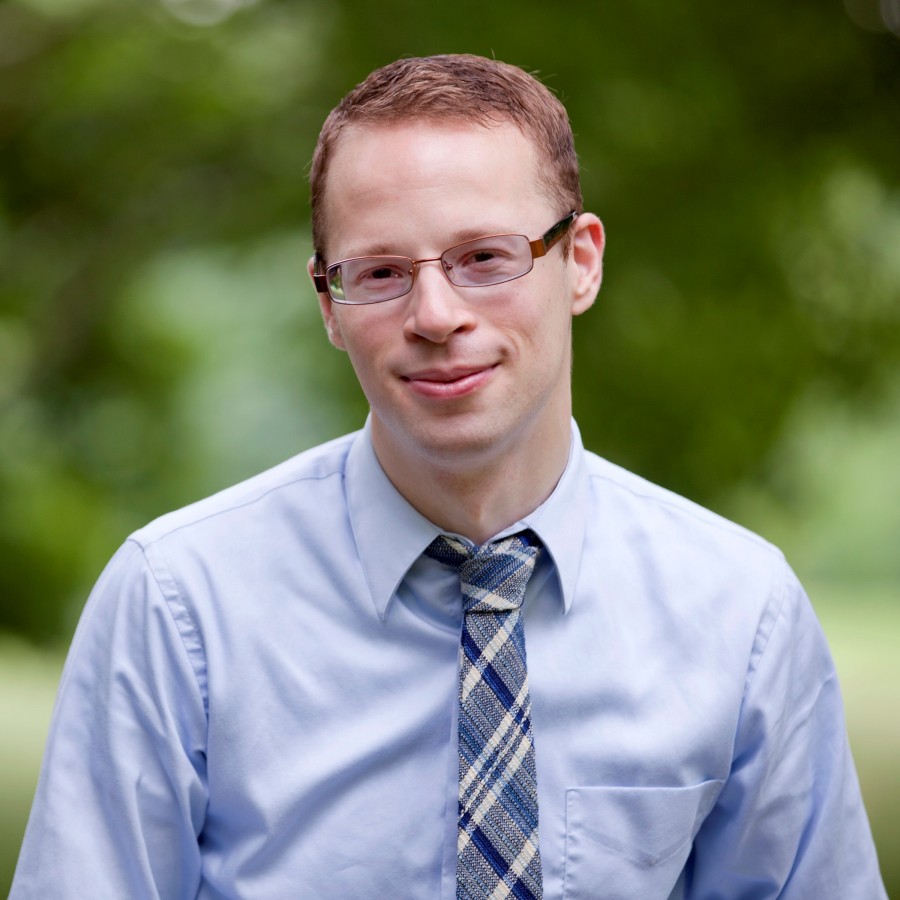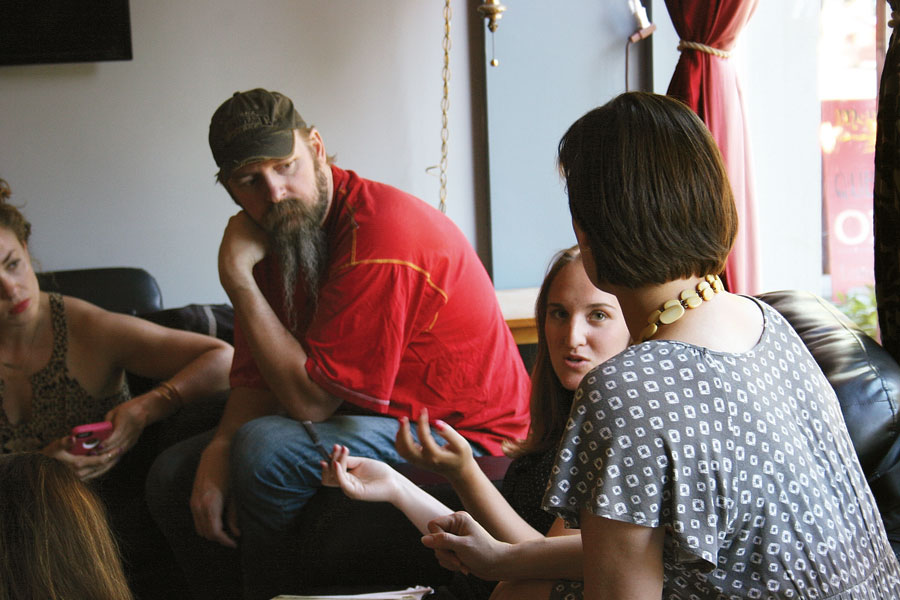WHAT’S NEXT
National, and perhaps international, dramaturgy open office hours now that the groundwork has been laid.
Dramaturgs don’t have it easy. Beyond the brow-wrinkling that non-theatre folk tend to do when encountering the word “dramaturgy,” dramaturgs are all too often the unsung heroes of the American theatre. They ask the hard questions, make the tough observations, and provide objective eyes and ears on a play. They do research, offer nuanced historical perspective, and take on the tricky task of tracking certain themes or tropes in a play. They nurture new plays while breaking apart the classics. Yet dramaturgs don’t receive anywhere near the amount of accolades as, say, actors do; they are seldom singled out in reviews the way directors or playwrights are.
When dramaturg Jeremy Stoller moved to New York City a few years ago, he was surprised to meet theatre professionals—playwrights, literary managers, and other new-play experts—who didn’t even know what a dramaturg does. “I would have the same conversations, and people would say, ‘What exactly do you do?’” Stoller recalls. “That really surprised me.”

Conceptions of the role of dramaturg that Stoller met usually fell into two categories: that a dramaturg was either a luxury for a playwright, or one that isn’t personally applicable to every writer’s process. What was a ’turg to do? Stoller, fresh to Gotham, was keen on meeting new collaborators, getting work, and making dramaturgy more accessible to those around him, but he was also wary of over-promising. (Some dramaturgically inclined websites advertise getting a show “production ready,” which didn’t interest Stoller.)
“This led me to think about how I could make myself as accessible and as friendly as possible, and I decided that was me, sitting in a public space with another dramaturg, and having a kind of open office hours,” Stoller says, then quickly adds: “And no dramaturgy would be performed. I don’t believe in strangers giving feedback on work.”
Rather, the Dramaturgy Open Office Hour Project is more of a theatrical-networking-event-meets-supermarket-free-sample-stand. Interested participants come with a specific question and have a casual hangout with Stoller and a guest at no cost. The guests are typically well versed in dramaturgy and may work as a dramaturg, literary manager, producing director, artistic associate, or artistic director. Stoller’s guests, who provide feedback and answers alongside him, have included Alex Barron, Liz Carlson, Michael Walkup, and Miriam Weiner. Anyone who comes is invited to ask a question, and the conversation flows from there. The feeling is low-key.
“Usually the guest is considered in some way a gatekeeper, and it was important to me that people be able to start building a relationship with an organization,” says Stoller. Much like a first date, if a certain artistic spark ignites, then any two people can continue the relationship outside of the office hours.
“I also decided to call it a ‘project’ so that it would free me up on any preconceived notions of how many people would show up and be successful,” says Stoller. “A ‘project’ sounds like more of an experiment. And I decided to blog about it.”
The Dramaturgy Open Office Hour Project began in the spring of 2014 over the course of eight weeks in such spaces as Le Pain Quotidien and donated spaces like the Drama Book Shop. By the second iteration, Catherine María Rodríguez, who had just completed her first season in a fellowship at Baltimore’s Center Stage, asked if she could start one in the D.C./Baltimore area. From there, it grew, with branches in Philadelphia, Chicago, and Seattle. “When we presented at the [Literary Managers and Dramaturgs of the Americas] conference, people expressed interest in expanding to more cities,” says Stoller.
It was important to Stoller that no one would have to pay to show up (beyond the cost of public transportation). “Ideally the location has Wi-Fi and sells coffee and is fairly centrally located,” he says. As the project gained momentum, Stoller sought out partner organizations, such as the New School and Columbia University. This past spring was the project’s first “tour” to Brooklyn. While the consistency of meeting in Manhattan was important to Stoller at first, by the project’s third “semester” this past spring, it was time to inject new voices that a new location would bring.
For Stoller, the immediate success of the project has mostly been about creating accessibility to dramaturgy as opposed to getting new clients. “The way my career has worked so far is that I meet someone and then maybe three years later we will work together,” he allows. Still, various pairings between playwright and dramaturg have occurred in other cities, and in D.C., a group of local writers formed their own playwriting group. Stoller also acknowledges that the project seems to have reignited a dormant conversation between the Dramatists Guild and LMDA.
Perhaps the real measure of the project’s success is how helpful attendees have found it to be. Playwright Lia Romeo, who is also the literary manager of New York City’s Project Y, went to a session hoping to get a better grasp on the elusive and vexing personal statement, which is commonly requested as an accompaniment to playwriting submissions. Speaking with Stoller and guest Janice Paran gave Romeo “a different perspective on something that had always felt kind of burdensome or unnecessary.” According to Romeo, Stoller and Paran talked about how “the personal statement is a chance to demonstrate knowledge about what additional work a play might need and to see whether your goals for the play are in line with what a particular organization might actually be able to help you achieve.” To that end, Romeo says, “I think the project allows playwrights access to different perspectives from some of the top dramaturgs in the field, which is really a very useful thing.”
Brooklyn-based playwright/performer Emilyn Kowaleski attended an event “without knowing how a dramaturg operated within a playwriting process, other than abstractly, since I’ve never had one. Jeremy explained that this sort of relationship was built slowly and was about finding the right fit and that the open office hours were partially a way of sussing that out.” While Kowaleski didn’t get the quick fix she dreamed of for her play, she did meet an interesting mix of other playwrights with whom she shared helpful hints and resources.
The biggest challenge for Stoller and his colleagues in other cities has been attracting participants. The two biggest groups so far have been early-career playwrights and older writers new to the field. “I don’t know if that’s a never-ending supply,” he adds. Stoller points out that playwrights in emerging writers groups or established playwrights generally have a person in their circle to reach out to regarding dramaturgy-related questions and don’t have as much of a need to network. And attendees tend to ask a lot of brass-tacks questions about submitting work and networking.
Nevertheless, Stoller remains enthusiastic. “It’s energizing to have a conversation, and I’m always excited about how the other dramaturg answers the same question,” he explains. “The challenge is finding people to get in the room.”
For now, Stoller intends to keep running the New York City chapter of the project, but perhaps not indefinitely. Given the recent interest at the LMDA conference, he imagines the project may continue to expand to other cities. “We’ve offered a ground plan,” Stoller says. As long as people are interested in running sessions and creating more accessibility to dramaturgs, office hours will remain open.


